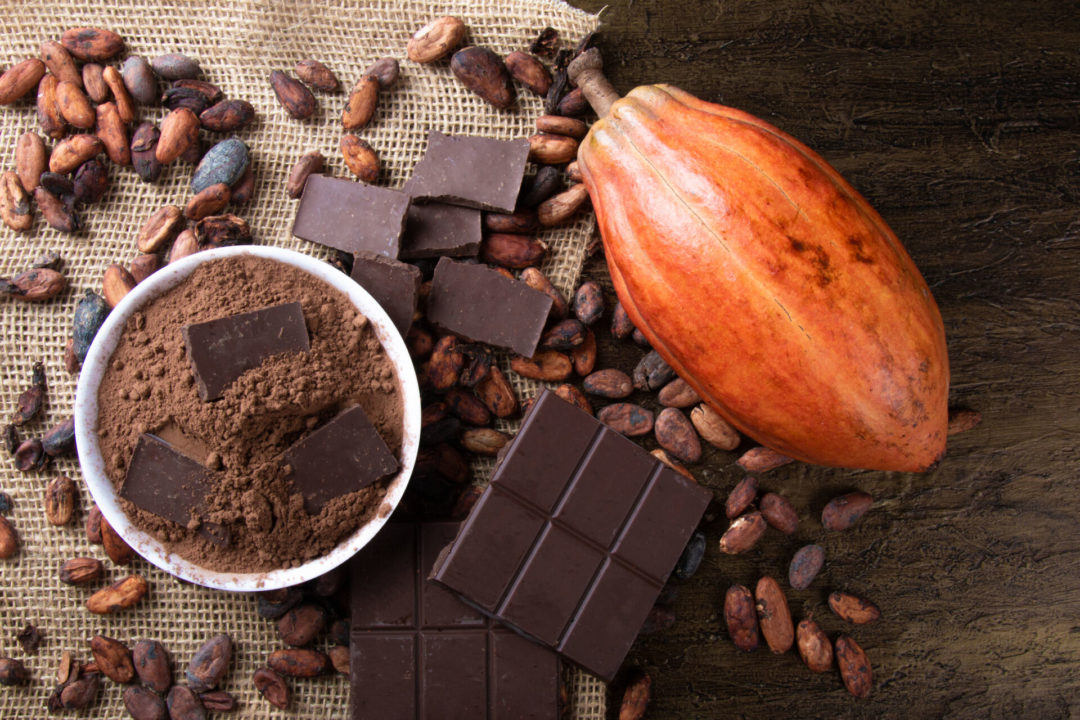“Small-scale farming communities are feeding the majority of the world with a quarter of all farmland while cooling the planet,” said Ryan Zinn, Executive Director of Grow Ahead. “It is time that we divest from false solutions and invest in grassroots-led initiatives that are tackling the root causes of the climate crisis, hunger, and poverty. We are excited to partner with Fairtrade International to expand this impact, planting more trees in agroforestry systems and supporting more cocoa-farming communities across West Africa.”
The partnership commits Fairtrade and Grow Ahead to supporting reforestation projects at Fairtrade-certified producer organizations as part of their climate adaptation and mitigation efforts, which will help meet forthcoming EU legislation on the deforestation impact of imported commodities.
“While global leaders meet in Glasgow, Fairtrade and Grow Ahead are committing to tangible efforts in delivering concrete solutions for those made most vulnerable by climate change,” said Dr. Nyagoy Nyong’o, Global CEO of Fairtrade International, in trhe press release. “As the recent Fairtrade and Climate Change report made clear, the threat to the future of our planet’s farmers and agricultural workers is very real and very severe. The time to stop talking and take action is now and that’s exactly what this partnership does.”
To kick off the partnership, Grow Ahead is raising funds to support a project with Ghana-based Fairtrade-certified cocoa producer Kuapa Kokoo to plant 150,000 timber tree species and 30,000 fruit trees, reforesting 11,942 acres over an initial two-year period. TheAgroforestry and Cocoa in Ghanaproject will work with 2,075 farmers across 25 communities in the Offinso municipality of Ghana, with the stated goal of reforesting cocoa farms and farmlands to create microclimates, reducing the impact of climate change on cocoa farmers, according to the press release.
The recently publishedFairtrade and Climate Changestudy found that in the Dominican Republic, Peru, and parts of West Africa, cocoa farmers are likely to encounter more hot and dry weather periods, while their counterparts in eastern Ghana and northern Côte d’Ivoire may face heavier rains. Other findings: Banana producers in the Caribbean and in Central America, for instance, are expected to face less rainfall and more extreme temperatures, while those in Southeast Asia and Oceania will see an increased risk of tropical cyclones; coffee producers in Brazil, Central America and South India could soon encounter temperature spikes combined with drought, directly impacting Fairtrade coffee production.
“Rural and indigenous communities are at the forefront of the climate crisis,” said Zinn. “They are not only disproportionately feeling the effects of the climate crisis, but are actively practicing methods, like agroforestry and agroecology, that are protecting biodiversity, building up soil health, restoring water to the area, and drawing down greenhouse gas emissions. Proven small-scale farmer solutions still receive little support, both from governments and markets. Grow Ahead and Fairtrade are working to combat this by supporting community-led agroforestry projects that put resources directly in the hands of cocoa farming communities, ensuring more sovereignty over their food and the resources to spread knowledge on sustaining their communities and their lands.”
Related: Alliance Aims to Improve Livelihoods for Coffee Farmers, Protect Endangered Gorillas ECRM’S Virtual Coffee, Tea, and Cocoa, Winter Program: 8 Trends to Watch AAK Expands Program Supporting Women in the Shea Industry
Planting cocoa in agroforestry or food-forest systems has a wide range of benefits, according to the press release, including conserving biodiversity, strengthening soil health, microclimatic control, carbon sequestration, pest control, enhancing climate resilience, and generating income for farmers through organic and fair trade product sales.“Our planet’s farmers and agricultural producers are on the frontline of the global climate crisis,” concluded Dr. Nyong’o. “But far from being victims, they remain integral in developing those key climate solutions that can reverse environmental degradation and pave the way towards a more sustainable tomorrow. That’s what this partnership is all about.”









